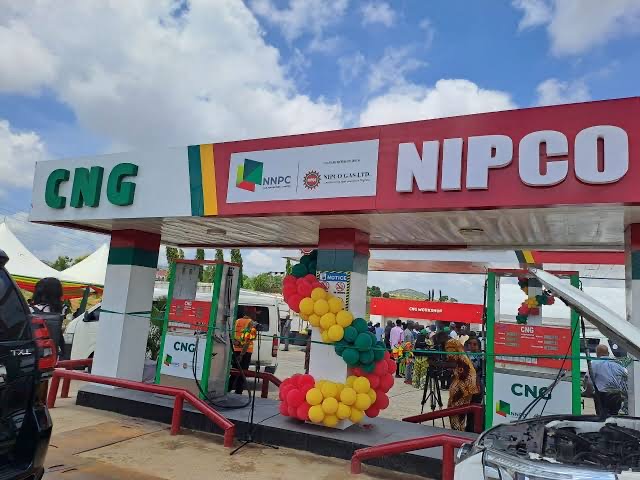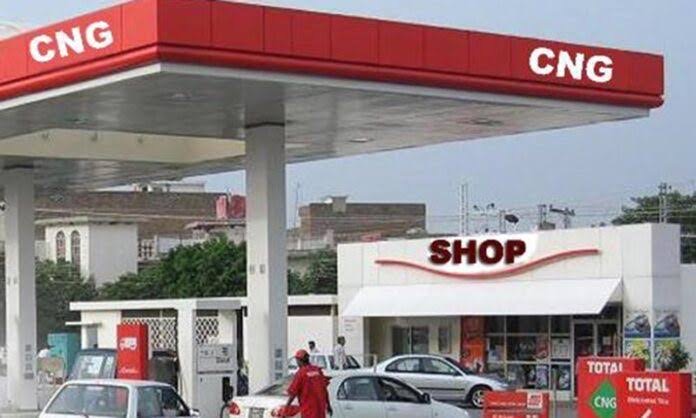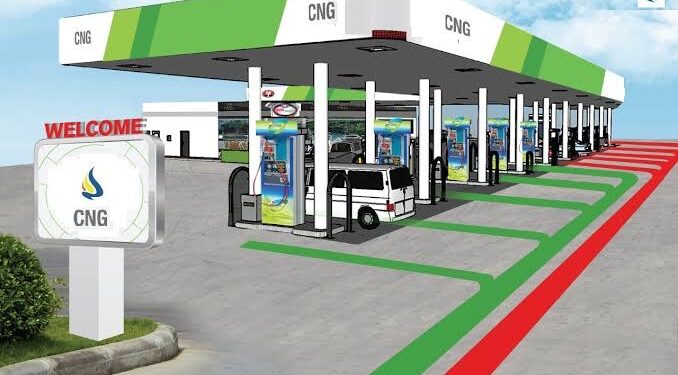NNPC, in collaboration with NIPCO, has inaugurated 12 Compressed Natural Gas (CNG) stations in Abuja and Lagos to mitigate the impact of rising transportation costs on Nigerians after the removal of fuel subsidies by President Bola Tinubu.Under the Presidential CNG initiative, NNPC and NIPCO Gas have formed a strategic partnership to expand CNG stations nationwide.
The initiative aims to provide accessible CNG to a diverse range of vehicles, including tricycles, cars, buses, and heavy transport vehicles.

The newly commissioned stations, six in Lagos and six in Abuja were officially opened by the Minister of State for Petroleum Resources (Gas), Ekperikpe Ekpo. During the ceremony, Mele Kyari, CEO of NNPC Limited, emphasized the irreversible commitment to bringing CNG closer to Nigerians, noting plans for further expansion and the construction of three Liquefied Natural Gas (LNG) stations in Ajaokuta.
Kyari underscored the initiative’s role in ensuring energy security and reducing price volatility compared to petrol. He credited President Tinubu for supporting efforts to enhance domestic gas utilization, aimed at delivering cleaner and more affordable energy sources.Huub Stokman, Managing Director of NNPC Retail Limited, projected the launch of over 100 CNG sites in the next year, including 16 sites from NNPC Gas Marketing and NIPCO Gas JV, highlighting CNG’s cost-effectiveness compared to petrol.Ekperikpe Ekpo highlighted the economic benefits of the stations, including job creation and economic stimulus, alongside contributions to national emissions reduction goals.Pius Akinyelure, Chairman of NNPC’s Board of Directors, emphasized the economic advantages of increased CNG adoption, particularly in reducing fuel costs for consumers and businesses.

Following the removal of fuel subsidies, NNPC Limited has taken the lead in deploying Auto-CNG Stations nationwide. NNPC Gas Marketing Limited and NIPCO Gas Limited have jointly developed a plan to construct 35 CNG stations across Nigeria, equipped with advanced compressors ensuring efficient service for CNG vehicles.The stations receive CNG from Mother Stations in Ajaokuta and Ibafo, with plans to connect the Abuja station to the AKK Pipeline.
They operate gas-driven generators to minimize carbon emissions and include facilities such as a vehicle conversion workshop at the Airport Road station in Abuja.Together, the Abuja and Lagos stations can dispense over six million standard cubic feet of CNG per day, serving approximately 15,000 vehicles daily, thereby ensuring continuous, affordable, and safe CNG supplies across different regions.


































